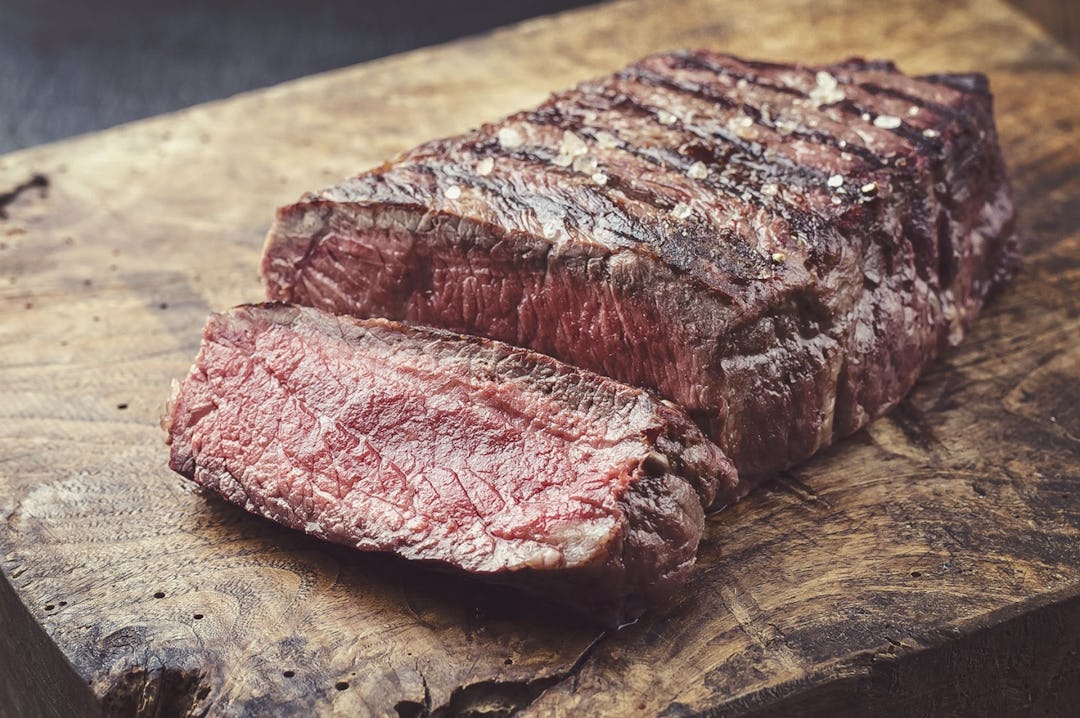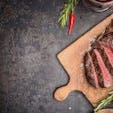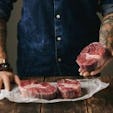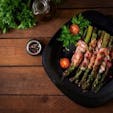True or False: Paleo is the Best Dietary Protocol.

Religions across history have been attaching their followers to the ideology of dietary purity. In ancient times, this was likely for their safety. Yet, now it seems that diets have become religions themselves.
The Paleo community is getting less and less stringent with their definition of what exactly is Paleo. The dogmatic among this community likely hate this evolution, but the indisputable fact is that we do not live in the Paleolithic era, and no matter how hard we try (which would be counter productive), we can not recreate that world – nor would we want to. Our goal is to objectively learn from our ancestors, just as it is to objectively learn about ourselves and what foods nourish us and what foods don’t.
Is the Paleo Diet Right for You?
In my mind, the attachment to any dietary doctrine inhibits that process. I am very clear in consults that I am not Anti or Pro Paleo. I flat out don’t care. The diet I am for them trying in the beginning is anything they prepare themselves that includes: organic vegetables, minimal fruit, healthy fats, and a surprisingly smaller amount of protein than they are used to – but chewed thoroughly.
“We must eat food that we can digest, assimilate, and eliminate without immune burden.”
– Dr. Russel Jaffe
This is my favorite sentence in the dietary world. If there was one dietary doctrine to rule them all, this sentence would be as close as we can get. You can use all kinds of strategies to figure out what this looks like for you. What it looks like will be a somewhat different for everyone and it will also likely change as we age.
Your Diet Should be as Unique as You Are

Human beings can become reactive to any ANY protein that is more than 15 amino acids long – such as bananas, avocado, gliadin, corn, coconuts, or salmon, among many others. We do know that eggs, nuts, grains, legumes, and dairy are going to be much more likely to become reactive and lead the charge.
This doesn’t mean, however, that if you eat blueberries every day, and your gut health is suspect from years of binge drinking, or you were raised in an overly hygienic environment, that you will not become reactive to blueberries.
We have to individualize and self-experiment. This expedition into the unknown is more difficult because the world is not black and white, and everyone could be right.
Here are some examples:
An overweight woman with hypothyroidism and small intestinal overgrowth likely should not eat fast acting carbohydrates for a very long time. Her GI tract and body as a whole are not going to be able to deal with that type of sugar bolus well. This means she also needs to limit the amount of high intensity physical activity she engages in.
She may also need to cut out foods that are high in FODMAPs for a while and will likely never do well eating a fruit salad after every meal. Sorry.
This woman’s road is extremely difficult, as it is about as counter-cultural as it gets and she is likely already wading through a swamp of how she feels about her body and what she thinks she should eat and how much.
Grass-fed beef liver could be the rapture for a vegetarian with heavy menstrual flows, but may be the single most inflammatory food choice for a man who absorbs iron more effectively.
A fourteen year old boy with five immediate relatives who have autoimmune diseases (Celiac, MS, Hashimoto’s, Lupus, etc) just wants to be normal. He also wants to gain muscle mass for his sport. He is talented, but little for his age. He starts to eat peanut butter sandwiches and chug glasses of skim milk every hour.
He doesn’t feel that bad, but is having trouble paying attention in class, and he isn’t growing. Now, is he going to become massive if he changes his diet to AutoImmune Paleo? His why is being giant. His why is making the team. He is 14!
He is a hardgainer likely because his GI tract is destroyed and has been for quite some time. You have to heal his gut and figure out what he can eat that will make him gain weight successfully, and then you likely have to rotate these items so he doesn’t become reactive. He has to master the basics and then you get fancy.
For the last example let’s point the finger inwards. My lifting brethren (male and female) and I would not exist in the Paleolithic era. There was no progressive overload with boulders and tree branches.
There were no anabolic windows or magic white dust for every hour of the hunt (maybe there was, but it was likely very different substances).
Muscle mass is not easy to put on, and it is the least efficient tissue. Our ancestors would only have put on enough to do the tasks they needed to do for them to survive. Thus, the strength and power game is already directly opposed to any type of Paleolithic ideology.
So why would you religiously attach yourself to that ideology if your goal is to get as big and bad ass as possible, and you don’t really care if you die at 75 or 85?
Insulin is the most anabolic hormone in the human body. We have to respect it and be able to manipulate it. For some of the general population, this could mean the only carb sources they should encounter are broccoli and other vegetables, but for athletes this could be mean tubers, white rice, or even ice cream and rice cakes at the right times, for the right individual (this is going to be rare and you are going to have to earn it).
Look to the Past, but Focus on the Future
![Is The Paleo Diet the Best Diet?]()
We cannot be married to some fictitious idea that we have about what our Paleolithic ancestors ate because it will never be attainable in our current food climate. We have to use the knowledge of the past to individualize dietary protocols for the future.
For the vast majority of people, all processed food should be thrown out and be eaten extremely sparingly. For all of us, food quality is of the utmost importance not only for our health, but for the planet.
We have to respect the power of modern foods and understand how they are produced, at what cost, and what they can do to our individual bodies – positive or negative.
What sparked this post was the TEDx talk below. The title is to grab people and does not really reflect her real message, but if we want to avoid dogmatism, we have to seek out, listen to, and respect those who do not have the same viewpoints as us.
Debunking the Paleo Diet


)





